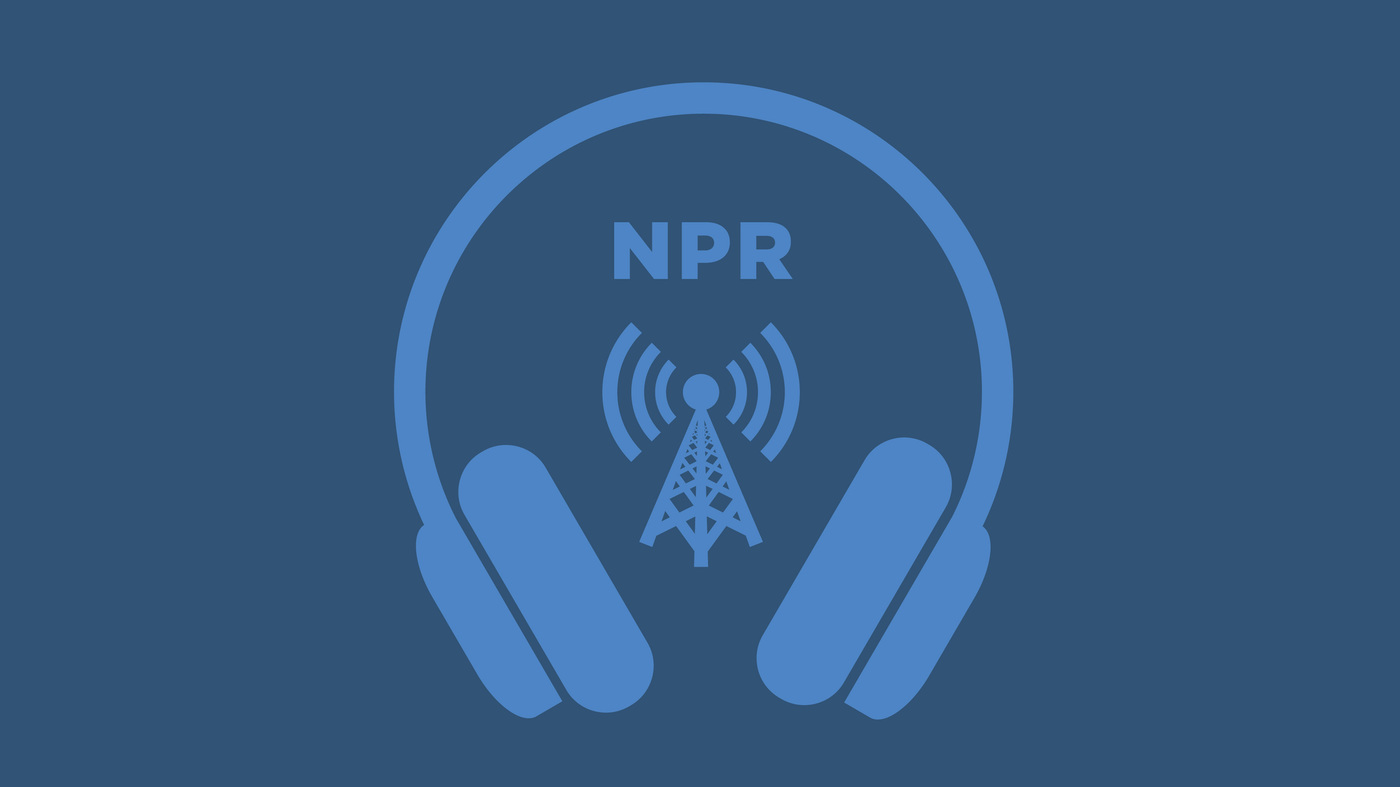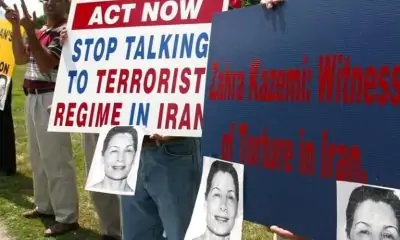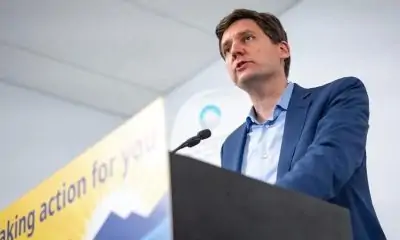The coronavirus gave a boost to many presidents and prime ministers around the globe. Take a look at three democracies: the U.K., Israel and Brazil.
SCOTT SIMON, HOST:
An average of polls shows that 53% of the American public disapproves of President Trump’s handling of the coronavirus. Just 43% approve. But that hasn’t necessarily been to the advantage of his rival Joe Biden. On average, his lead in national polls is only half that margin. He’s not alone. Around the world, right-wing leaders who have praised the U.S. president have either stumbled in the face of the health crisis or capitalized on it as opposition leaders hang back. We’re joined now by several distinguished NPR correspondents. Philip Reeves in Rio de Janeiro. Phil, thanks for being with us.
PHILIP REEVES, BYLINE: You’re welcome.
SIMON: NPR’s Daniel Estrin in Jerusalem. Daniel, thank you.
DANIEL ESTRIN, BYLINE: Thank you.
SIMON: And NPR’s Frank Langfitt in London. Hello to you, Frank.
FRANK LANGFITT, BYLINE: Hey. Good morning, Scott.
SIMON: Daniel Estrin in Jerusalem, Prime Minister Netanyahu looked like he was in big trouble, once again, after three deadlocked elections. But then came the virus. How did that affect his political fortunes?
ESTRIN: Oh, it changed his fortunes completely. I mean, before the – before the pandemic, he was struggling. He was indicted for corruption. Some of his political allies turned against him, and more and more voters were just getting tired of him. He’s been in office for a decade. And then a former Army general, Benny Gantz, decided to run for prime minister. He mounted the most serious challenge Netanyahu has faced in a decade. Then, three rounds of elections came and ended in stalemate.
And then came the coronavirus. And Netanyahu, you know, he has not downplayed it, like Boris Johnson has in the U.K. He snapped into action. He closed Israel’s borders pretty early on. He mobilized the army and the intelligence agencies. The whole crisis just played into Netanyahu’s brand as Mr. Security, and he called on the opposition leader to put aside politics and share power. That’s exactly what happened. The opposition leader just agreed to a unity government. He is letting Netanyahu stay on as prime minister, and I think it just shows how unified the opposition was to begin with.
SIMON: Phil, let’s turn to you in Rio because, of course, President Bolsonaro has even entered into U.S. accounts, and he has downplayed the virus. However, the death toll in Brazil is increasing. How have the political opposition – has the political opposition responded?
REEVES: Well, Bolsonaro is facing huge criticism from across much of the political spectrum, and the decibels have just gone up some more because his health minister quit yesterday, reportedly because he objected to Bolsonaro’s plans to expand the use of chloroquine, the anti-malarial drug. And he’s the second health minister to go in less than a month. The one before him was fired by Bolsonaro. And in between, the justice minister quit, accusing Bolsonaro of politically interfering in law enforcement.
So all of this is reinforcing the view that Bolsonaro’s response to the pandemic is a disaster. Brazil’s now registered around 15,000 deaths. The number of new cases is higher than anywhere except the U.S. Yet Bolsonaro’s engaging in the politics of confrontation and ideology. He’s been going to war with state governors who are urging people to stay home and, in some cases, introducing lockdowns. Bolsonaro favors opening up the economy. And therefore, he’s trying to channel the blame for the aftermath, the economic damage that this pandemic will cause, which will be vast, onto governors and other institutions of state.
SIMON: And we have to ask. In a democracy, to what degree is any of the opposition getting through with the public? How is it changing Bolsonaro’s political fortunes?
REEVES: Well, the polls show that the people who – the numbers who disapprove of his performance are rising, and they’ve risen quite sharply. He’s also facing numerous petitions in Congress for his impeachment. So that’s a symptom of the growing anger and alarm over his handling of this.
Yet it’s important to say, Scott, that, you know, the opposition is divided. And there’s also a feeling among some of his key political opponents that now’s not the time to impeach him. After all, there’s a pandemic going on.
There is one politician you would expect to be on an all-out attack, and that’s the former President Lula da Silva, who was released from jail in November. You’ll recall he was imprisoned on corruption charges. He says it was an entirely political prosecution and he denies those charges. He’s been remarkably subdued, although perhaps there’s a change of tone now. He spoke this week to a virtual meeting of his fellow leftists, and he accused Bolsonaro of showing no respect for the courts or Congress, of putting Brazil on the path to authoritarianism. That’s probably a reference to the number of military officers, or retired military officers, that he’s been bringing into government. And now Lula has started pushing congressional leaders to put one of those impeachment petitions, and there are more than 30 of them, to the vote.
SIMON: And turning to Frank Langfitt in London, where all this is playing out a little differently, Prime Minister Boris Johnson initially downplayed the pandemic, then getting it himself, reversing his approach and imposing a national shutdown. Tell us about the response of the new head of the Labour Party.
LANGFITT: Well, it’s been really interesting, Scott. The new head is a guy named Keir Starmer. And basically, he’s holding the government to account, I think in some ways kind of giving a textbook example of how you do this. Now, the government, as you mentioned, doesn’t really have a strong record here – most deaths in Europe, not enough PPE and way behind on testing. And this guy, Keir Starmer, he’s a former prosecutor, and he’s treating Johnson a little bit like a defendant in a court case. Now, he is being polite, but he’s being very forensic. And for instance, every Wednesday, they have Prime Minister’s Questions, which is nationally televised. And what Starmer will do is ask very tough questions, like there are 10,000 unexplained deaths in nursing homes. How is this? Now, Johnson, he is a populist. Like the president, he is an entertainer. He’s not really a detail guy. And normally, what he might do if he got in a tough situation is try to rile up his side of the crowd in the House of Commons. Well, with social distancing, there’s nobody there but himself. And so, you know, Starmer has really been able to put him on the ropes, and it’s been fascinating to watch.
SIMON: Any – does it seem to register with the British public?
LANGFITT: So far, a little bit, yes. There’s a YouGov poll out I think earlier this week that showed Starmer’s actual net approval rating slightly higher than Johnson’s. But I wouldn’t read that much into this because this is going to be a very long road. People don’t know Starmer that well. And also, it’s clear that the Conservative Party would like to get people back into the House of Commons as soon as possible, in part because Johnson seems to be having a pretty tough time.
SIMON: Daniel Estrin, back to you in Jerusalem. The Israeli opposition hasn’t been able to oust Netanyahu after a decade. I guess in your explanation, he doesn’t seem to be in any mood for conciliation right now, does he?
ESTRIN: Well, in some ways, I mean, he does have to compromise because he’s sharing power with centrists now. He’s in a unity government. So he won’t be able to do some of the things that the right wing wants him to do. In other ways, he may try to use this momentum to push forward on a very controversial geopolitical move and try to annex some parts of the West Bank.
But all in all, it is a victory for Netanyahu. You know, he made this convincing argument. Just like we hear in Brazil, it’s resonating. Put politics aside, it’s the coronavirus. And, you know, I think polls show here that if he held elections today, he would win by a landslide. He’s been able to make this case to the public that he’s still a worthy leader during this pandemic.
SIMON: Well, I want to thank all three of our distinguished correspondents for being with us for this important conversation today about some of the political implications of fighting coronavirus. NPR’s Frank Langfitt has been in London, Phil Reeves in Rio de Janeiro and Daniel Estrin in Jerusalem. Thank you all very much.
REEVES: You’re welcome.
ESTRIN: Thanks a lot.
LANGFITT: You’re very welcome, Scott.
(SOUNDBITE OF MUSIC)
Copyright © 2020 NPR. All rights reserved. Visit our website terms of use and permissions pages at www.npr.org for further information.
NPR transcripts are created on a rush deadline by Verb8tm, Inc., an NPR contractor, and produced using a proprietary transcription process developed with NPR. This text may not be in its final form and may be updated or revised in the future. Accuracy and availability may vary. The authoritative record of NPR’s programming is the audio record.





























